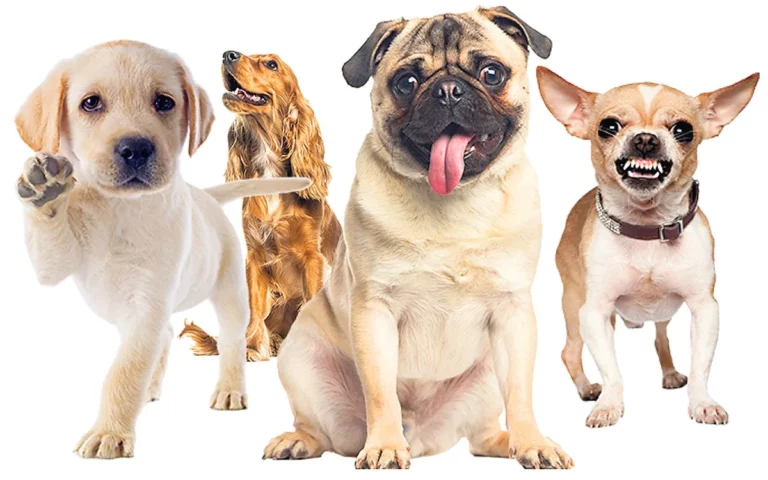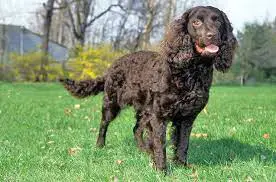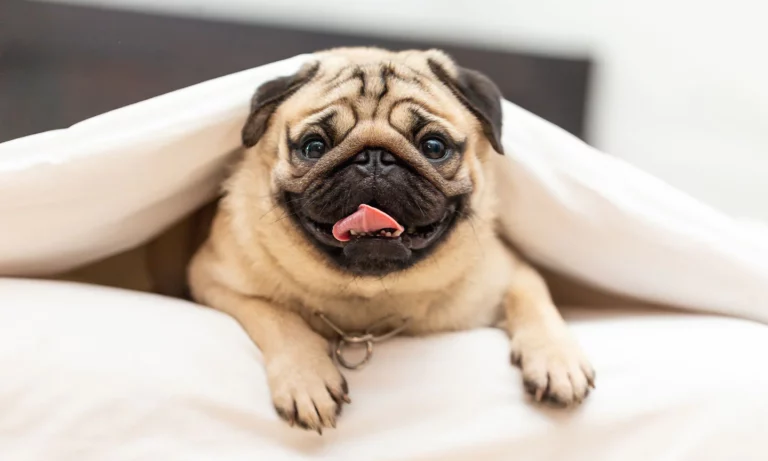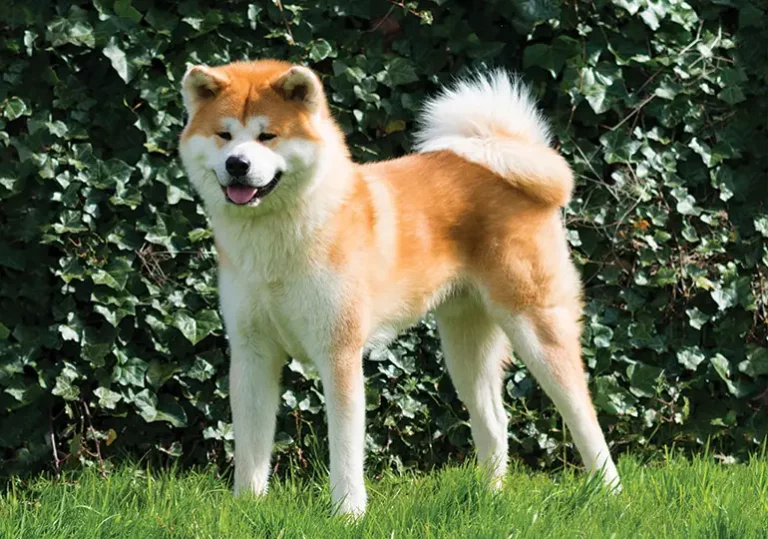Why Do Dachshunds Lick So Much? (5 Reasons & What To Do)
If you’re a dachshund owner or admirer, you’ve likely noticed their propensity for licking – whether it’s your face, their paws, or various objects around the house.
While it may be endearing or even amusing at times, you may find yourself wondering, “Why do dachshunds lick so much?” understanding the reasons behind this behavior can help dachshund owners better care for their pets and even strengthen the bond between owner and canine companion.
In this blog post, we’ll delve into the various factors that contribute to a dachshund’s love for licking, offer insights on how to manage this behavior, and address common questions on the topic. So, sit back, grab a cup of tea, and let’s explore the fascinating world of dachshunds and their licking habits!
Key takeaways
Dachshunds may lick excessively due to various reasons including grooming, tasting, bonding, or anxiety.
Health issues like allergies, skin conditions, or internal diseases can also prompt excessive licking.
Behavioral causes like boredom, stress, or compulsive behavior can result in increased licking.
If your Dachshund is licking excessively, it’s essential to identify the root cause and address it.
Consulting with a vet is recommended to rule out medical issues and develop an effective treatment plan.
5 Reasons Why Dachshunds Lick So Much
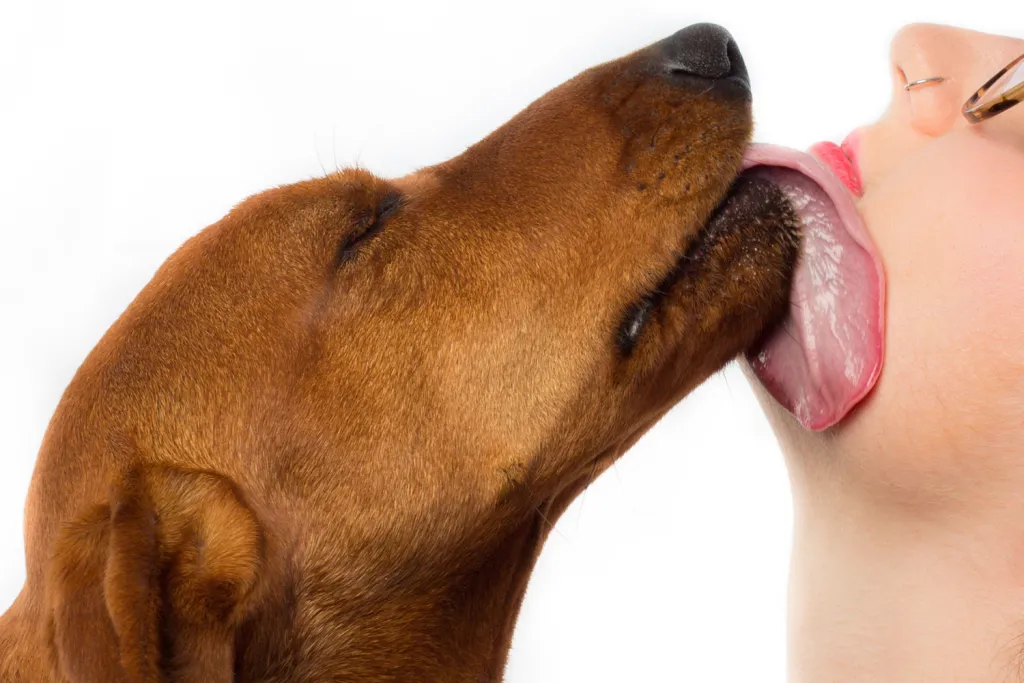
1. Communication and Affection
A dachshund’s licking behavior often serves as a means of communication and a way to express affection. Let’s take a closer look at how these lovable pups use their tongues to interact with their environment and the people they adore.
Building bonds with their owners
Licking is a natural way for dachshunds to create and maintain strong connections with their owners. This behavior originates from their early days as puppies when they would lick their mother’s face to stimulate regurgitation of food.
As they grow and become part of a human family, they continue to use licking as a way to bond and show love to their human companions.
No products found.
Displaying submission and respect
In the canine world, licking can also be a sign of submission and respect. A dachshund may lick you, other dogs, or even objects to demonstrate their acknowledgment of your position in the family hierarchy.
This is particularly common when greeting you after a period of separation, as your dachshund aims to reaffirm their role in the pack.
Seeking attention and reassurance
Sometimes, dachshunds lick simply because they want your attention. This is especially true if they’ve received positive reinforcement for licking in the past, such as pets, praise, or treats.
Additionally, dachshunds may lick when they’re seeking reassurance or comfort, particularly if they’re feeling anxious or insecure. In these instances, your furry friend may rely on licking as a way to cope with their emotions and feel closer to you.
2. Exploring Their Environment
Dachshunds are naturally curious creatures, and their strong sense of taste plays a significant role in how they perceive the world around them. Licking can be a way for them to explore new tastes and textures, as well as gather information about their surroundings.
Sensing the world through their taste buds
Dogs have fewer taste buds compared to humans, but they still rely on their sense of taste to gather information about their environment. Dachshunds, like other dogs, will lick surfaces, objects, and even people to learn more about what they’re encountering.
This behavior allows them to determine if something is edible, potentially dangerous, or simply interesting.
Discovering new tastes and textures
Dachshunds are known for being food-driven, and their love for licking can be partially attributed to their passion for discovering new flavors. They may lick a variety of surfaces and objects, from your kitchen floor to your favorite pair of shoes, in search of interesting tastes and textures.
While this behavior can sometimes be mischievous, it’s essential to remember that it’s a natural part of their inquisitive nature.
To keep your dachshund’s taste buds satisfied and their curiosity piqued, consider providing them with a variety of dog-safe toys and treats that offer an array of textures and flavors. This can help keep their licking habits directed towards appropriate objects and away from items that may be harmful or off-limits.
3. Grooming and Hygiene
Dachshunds, like other dogs, use licking as a way to maintain cleanliness and practice self-grooming. This instinctive behavior helps keep them looking and feeling their best while also providing a sense of comfort and relaxation.
Maintaining cleanliness
Dachshunds may lick themselves to clean dirt, debris, or food particles from their fur and skin. This natural grooming technique helps keep their coat healthy and shiny while also reducing the risk of skin infections and other issues.
Regular grooming sessions, including brushing and bathing, can support your dachshund’s self-cleaning efforts and help minimize excessive licking.
Self-soothing and relaxation
Licking can also serve as a form of self-soothing for dachshunds, helping them relax and unwind after a long day or during moments of stress. The repetitive motion of licking can release endorphins, which provide a sense of comfort and pleasure for your furry friend.
Providing a safe and comfortable environment, along with opportunities for mental stimulation and relaxation, can help reduce stress-related licking.
Taking care of wounds and injuries
If your dachshund has sustained a minor wound or injury, you may notice them licking the affected area as a way to promote healing. While a small amount of licking can be beneficial, excessive licking can lead to further irritation or infection.
If your dachshund is excessively licking a wound or injury, consult with your veterinarian to determine the best course of action for promoting healing and preventing complications.
4. Stress and Anxiety
Dachshunds, like all dogs, can experience stress and anxiety, which may lead to increased licking behavior. Recognizing the signs of stress in your dachshund and taking steps to address their emotional well-being can help minimize excessive licking.
Identifying signs of stress in dachshunds
In addition to excessive licking, there are other signs that may indicate your dachshund is experiencing stress or anxiety. These can include:
- Panting
- Pacing
- Whining or barking
- Tucked tail
- Loss of appetite
- Destructive behavior
Providing a calming environment
Creating a calming and reassuring environment for your dachshund can help reduce their stress levels and, in turn, minimize excessive licking. Consider providing them with a safe and comfortable space of their own, such as a crate or a designated dog bed, where they can retreat when feeling overwhelmed.
Table could not be displayed.You can also incorporate calming scents, like lavender, or play soft, soothing music to help create a tranquil atmosphere.
Techniques to reduce stress and anxiety
Addressing the underlying causes of your dachshund’s stress and anxiety can help reduce excessive licking. Some techniques to consider include:
- Regular exercise: Ensure your dachshund gets plenty of physical activity to help burn off excess energy and reduce stress.
- Mental stimulation: Engage your dachshund’s mind with puzzles, interactive toys, and obedience training to help alleviate boredom and anxiety.
- Consistent routine: Maintain a consistent schedule for feeding, walks, and playtime to provide a sense of stability and predictability.
- Socialization: Expose your dachshund to new experiences, people, and other animals in a controlled and positive manner to build their confidence and resilience.
If your dachshund’s stress or anxiety persists despite your efforts, consult with a veterinarian or a certified dog behaviorist for professional guidance and support.
5. Health Issues
Excessive licking can sometimes be an indication of an underlying health issue. Dachshunds may lick themselves, objects, or people as a way to cope with discomfort or pain associated with various health problems.
It’s crucial to monitor your dachshund’s licking behavior and consult with a veterinarian if you suspect a health concern.
Allergies and skin irritations
Dachshunds can be prone to allergies and skin irritations, which can cause itching, redness, and discomfort. In response, they may lick the affected areas in an attempt to alleviate their symptoms.
If you notice your dachshund frequently licking a particular area of their body, check for signs of irritation or inflammation, and consult with your veterinarian for proper diagnosis and treatment.
Dental and oral issues
Excessive licking can also be a sign of dental or oral issues, such as tooth decay, gum disease, or oral injuries. Dachshunds may lick their lips, paws, or other surfaces in an attempt to alleviate pain or discomfort in their mouth.
Regular dental check-ups and at-home dental care can help prevent dental issues and keep your dachshund’s mouth healthy.
Nutrient deficiencies and gastrointestinal problems
A dachshund’s licking behavior may be indicative of nutrient deficiencies or gastrointestinal issues. If your dachshund is licking non-food items, such as rocks, dirt, or fabric, they may be suffering from a condition called pica, which can be associated with nutrient imbalances or gastrointestinal problems.
Consult with your veterinarian to discuss your dachshund’s diet and ensure they’re receiving the proper nutrients to maintain their health.
No products found.
Encouraging Appropriate Licking Behavior
While licking is a natural and instinctive behavior for dachshunds, it’s essential to establish boundaries and encourage appropriate licking habits. By setting expectations and offering alternatives, you can help your dachshund develop healthy licking behavior that doesn’t cause problems or discomfort for you or your pet.
1. Establishing boundaries and expectations
It’s crucial to teach your dachshund what is and isn’t acceptable when it comes to licking. Consistently enforce the rules by praising appropriate behavior and discouraging excessive or inappropriate licking.
For example, if you’d rather your dachshund not lick your face, gently redirect them and reward them for complying with your request.
2. Redirecting excessive licking
When your dachshund engages in excessive or inappropriate licking, try redirecting their attention to a more suitable activity. Offer them a toy or treat, engage them in a game, or initiate a training session to focus their energy on something more constructive.
Consistent redirection can help your dachshund learn that there are more rewarding and enjoyable ways to spend their time than excessive licking.
3. Rewarding positive behavior
Positive reinforcement plays a significant role in shaping your dachshund’s behavior. When your furry friend exhibits appropriate licking habits or responds well to redirection, be sure to reward them with praise, affection, or a small treat.
Reinforcing positive behavior will help your dachshund understand what is expected of them and encourage them to continue making good choices.
Frequently Asked Questions
Are dachshunds more prone to excessive licking compared to other breeds?
Dachshunds are not necessarily more prone to excessive licking compared to other breeds. However, their inquisitive nature and strong sense of taste may lead them to lick more frequently as they explore their environment.
Individual dogs within any breed can exhibit excessive licking behavior due to various factors, such as health issues, stress, or environmental influences.
How can I tell if my dachshund’s licking is a sign of a health issue?
If your dachshund’s licking is focused on a specific area of their body, causing hair loss or skin damage, or if they are frequently licking non-food items, it could be indicative of an underlying health issue.
Other signs of potential health concerns may include changes in appetite, energy levels, or general behavior. If you suspect a health issue, consult with your veterinarian for a thorough examination and appropriate treatment.
What are some alternatives to licking that I can introduce to my dachshund?
To provide your dachshund with alternatives to licking, consider offering them a variety of dog-safe toys and treats that engage their senses and provide mental stimulation.
Puzzle toys, chew toys, and interactive toys can help keep your dachshund entertained and focused on appropriate activities. Engaging in regular playtime, exercise, and training can also help redirect their energy and reduce excessive licking behavior.
How do I train my dachshund to stop licking my face?
To train your dachshund to stop licking your face, begin by establishing boundaries and consistently enforcing them. When your dachshund attempts to lick your face, gently redirect them to an appropriate activity, such as playing with a toy or performing a simple command.
Reward your dachshund for complying with your request and for displaying positive behavior. With patience and consistency, your dachshund will learn to respect your boundaries and stop licking your face.
Are there any specific products or toys that can help curb my dachshund’s licking behavior?
Several products and toys can help curb your dachshund’s licking behavior. Consider providing them with chew toys made from durable materials, like rubber or nylon, which can satisfy their need to lick and chew.
Puzzle toys and treat-dispensing toys can also help keep your dachshund occupied and mentally stimulated, reducing their desire to engage in excessive licking.
Additionally, lick mats, which are textured mats designed for spreading soft treats or dog-safe peanut butter, can provide a suitable outlet for your dachshund’s licking urges.
Final Thoughts
Dachshunds, with their unique charm and playful nature, can certainly capture our hearts. Their licking behavior, while sometimes perplexing, serves various purposes, from expressing affection and exploring their environment to self-grooming and coping with stress.
By understanding the reasons behind their licking habits, you can better support your dachshund’s needs and foster a strong, loving bond with your furry companion.
Remember, patience and empathy are key when addressing your dachshund’s licking behavior. Be prepared to establish boundaries, redirect excessive licking, and address any underlying health or emotional concerns that may be contributing to their licking habits.
With a little time and dedication, you can help your dachshund develop healthy licking habits that keep them happy, well-adjusted, and a cherished member of your family.

